All images courtesy of Duncan Mackay/Getty Images
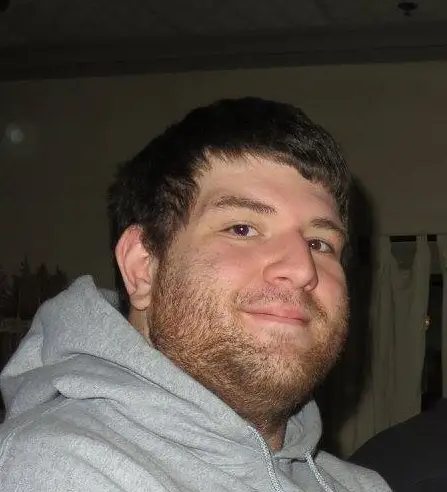
By Joe O’Brien
joe@vinylwriter.com
Would you be interested in the story of a childhood violin prodigy turned teacher, who upended his life to move to Brazil after a chance encounter to become the organ player for a storied Jazz musician?
What about the story of a young keyboard player, who while grinding it out on the South African club circuit, made a virtuoso-level, now cult-classic/prog rock solo album, which paid off in the most unexpected of ways, leading him to London to explore the musical world with the likes of Gary Moore and Ginger Baker before finding his harmonic balance?
What if I was to tell you of a third musician, who over the course of a decade was a member of legendary bands Cockney Rebel and 10cc? And while a member of those bands, at the same time he remained one of the most in-demand session musicians, participating in recordings by The Alan Parsons Project, Kate Bush, Camel, Budgie, and others. As unbelievable as it is, all three of these musicians are one and the same.
The man in question? The understated legend Duncan Mackay.
Not only does Mackay’s story incorporate that of the “three musicians,” but he also moved to become an accomplished composer, delving into library music and soundtracking. And after focusing on composing for several years, Mackay decided to harken back to his progressive roots through a liaison with the Japanese label, Belle Antique.
That particular rabbit hole led Mackay to the most recent and exciting footnote in his celebrated career, Fluance, a band that’s pitched a fresh take on a familiar sound, and one which both challenges and comforts the listener in one fell swoop.
Fluance is set to release their second album shortly, but in the meantime, you can get your fix listening to their first release, Lunacy.
One fine afternoon, from his home studio in South Africa, Mackay took the time to sit down with me via Zoom for an exclusive, career-spanning chat.
Joe:
From what I understand you initially studied violin in school. What drew you to focus more on the organ, keyboards, and other key-based instruments?
Duncan:
Well, I was very fortunate that my late father was a fabulous musician. He was a great violinist which is why the violin was the instrument that I went and did my music degree for. When I was at university, it was obligatory that your second instrument was keyboard based. I chose to do church organ as my second instrument. It was absolutely great. That’s where I really honed my bass pedal playing. It was quite good at one time in my life. When I got my degree, I taught music for six months and realized that that was not what I wanted to do in my life. I just started playing around with keyboards, and I managed to get my first Hammond organ.
The way I was playing at that time was more from the jazz side. Jimmy Smith type Jazz, rather than traditional Jazz. I started getting noticed playing organ in that nontraditional Jazz style. In fact, that’s how I ended up in Brazil at the age of 20. That all started when I met a fabulous guitarist by the name of Rosinha de Valença. She was in town playing with her band, but she also played with Sergio Mendes. She and I got on, and to cut the story short, their keyboard player had other things to do with his life. So, she said, “Would you like to come to Rio de Janeiro and play with the rest of the chaps?” I quickly resigned from my teaching job, and I was on the next plane to Brazil.
Joe:
Speaking of your experience in Brazil, what effect did playing in the Sergio Mendes Band have on you as a young musician?
Duncan:
I think the experiences, as can happen when you’re younger, are a natural chain of events that come about through a combination of chance and skill. I took it on board, and I got on with it. When I got a little older and was able to look back, I realized that was actually very important. At the time, it was just an adventure. Going to Rio. Holy shit, what a great place. Musically, I really learned rhythms from those guys. They were fantastic with rhythm. Rhythm is so important in music from Brazil.
Joe:
How did the experience come to an end?
Duncan:
A chain of events led to the end of that experience. I can tell you I was lock-stock-and-barrel when I went over there. I shipped my prized possession, my Hammond organ, over to Rio. Unfortunately, some corruption in customs gave me trouble. Someone decided they liked my Hammond, and they didn’t want to let it out of customs. I said, “Well, send it back.” They said, “No, no, no. You can’t send it back unless you leave with it.” So, wrongly, or rightly, I left with my Hammond, which was my most important possession at that age. I think I was over there for six months. It was a great time in my life.
Joe:
How did you get into the prog rock scene?
Duncan:
I came back to South Africa by which time I’d become aware of Keith Emerson. I think he was playing with The Nice in those days. What he was doing fit in with everything that I was writing. Keith was a big inspiration for the way I played in my early days. I love what he got up to. He was the first keyboard showman. There were plenty of guitarists chucking their guitars around, standing on monitors, a smashing up Marshall speakers. Normally, the keyboard player was somewhere in the background. Emerson stepped out and said, “I’m not doing that.” I loved him for it, and of course, he was an extraordinary player.
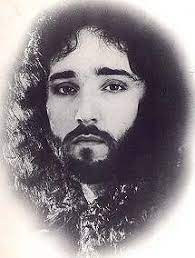
Joe:
What sort of influence did Keith Emerson have on your playing and musical direction of your first solo album, Chimera?
Duncan:
I have always strived to be original in my career. Of course, you can’t help but be influenced by outside things. Emerson was a big influence, and I enjoyed what he got up to for a lot of reasons. Back then – we’re talking early 70s – there was one great thing about the music world. If your technique, playing, and imagination were bigger than the next guy, you were more likely to get the job. If you were also a good player and you practiced hard, then you could start going towards the virtuosity that Emerson had.
Joe:
The attributes you mentioned: imagination, technique, and originality, were on full display on Chimera. Tell us about how the album came together.
Duncan:
It was a massive stepping-stone. At that time, I was playing a multitude of keyboards, which included playing bass pedals with my feet. I was working with a fabulous drummer called Mike Gray. We were playing in a club several nights a week. Then we were offered an album deal. All of that meant that we were packing up all the gear every morning, at the club, and putting it in my van. Then we would drive into the recording studio, unload it, and record all day. Afterward, we would pack it up and put it back in the van. Then drive back to the club, set up all the gear, and play all night. Recording-wise, that was almost live. The whole album, the basic tracks anyway, were done in three days. That is unheard of nowadays. There were a couple of overdubs over a couple of days. We went in to sing a bit and do a few other things as well. But that was pretty much it. I look back at it now and wonder how the bloody hell that happened. [Laughs]. At the time, my knowledge of what was meant to happen in the studio was zero. It wasn’t extraordinary, it was simply what we did. The whole process was part of what made the Chimera album special. Recording those songs all day and playing them every night.
Joe:
What part, if any, did Chimera have on enabling you to garner the amount of work you would come into shortly following its release?
Duncan:
So, the club where we played was called The Branch Office. It instantly became a hub for other musicians. It was the only club around that didn’t have a dance floor. People just came and sat and listened. When all the other musicians playing in other clubs finished playing at midnight, they would come over. It always turned into a jam session. It was very good times. One of the chaps who was visiting at the time was Peter Knight Jr. He was the head of Phonogram International. I felt I was coming to the end of the club thing. We hit the highs there. My plan was always to return to England. A couple of weeks later, I got a call from Peter, and said, “Ginger Baker and Adrian Gurvitz are starting a new band. They’ve heard Chimera. I’ve told them how you play. Would you like to join?” I was a fan of Cream, and Ginger Baker was a hero of mine. Ginger was right up there, blimey. I got the call on a Saturday morning, and that same night I got on a plane to England. I showed up there and I started with Ginger Baker and Adrian Gurvitz. I believe the group was to be called The Baker-Gurvitz Army. Unfortunately, it didn’t work out. I’ve met a lot of people in the music business. All types and levels of importance. Ginger Baker is right up there with one of the most unpleasant people I’ve ever met. [Laughs].
Joe:
At that point, you stayed in England to look for a gig that was a better fit, right? What led you to join Cockney Rebel?
Duncan:
I went to Peter Knight Jr., with who I’d become friends, and was now back in London. I went to him, and I said, “Look, I appreciate everything, but I can’t do this.” It was a difficult decision, but Peter was very helpful. I looked around and ended up meeting two great chaps. Jon Hiseman, from Colosseum, and Gary Moore, the guitarist. They were starting a band called Colosseum II. After I met them, I started rehearsing with them. It was fantastic. Nice people. Unbelievable players. But they were broke and didn’t have any record company support. I was broke too, like most musicians, and needed a paying gig. Suddenly, the Cockney Rebel gig was offered to me. Initially, I auditioned with Steve Harley, and I didn’t get the gig. Then, for some reason, I got called back for a second audition. By this time Jim Cregan was the guitarist in the band, and Jim said to Harley, “You got to get this guy,” and I joined Cockney Rebel.
Joe:
Cockney Rebel had some decent success and exposure in the U.K., including a number one hit. Why do you feel the band wasn’t able to duplicate that same feat in The States?
Duncan:
I don’t know. We did a tour of the states, which I enjoyed immensely. During the tour, we were supported by The Kinks. It all seemed to go down well. I wish I had a more definitive answer. Back then the business side of music wasn’t at the forefront of my mind. I was playing music with a bunch of great guys and having fun. The politics and that side of music hadn’t gotten their hooks into me yet. I look back on those times, by the way, Joe, with happiness. The business side of music isn’t always something to be proud of. I understand it’s got to be there, but it’s got very little to do with actual music.
At that time, at least, the record companies were more apt to recognize a band for what it was and where it can progress to. It was not uncommon for a band to sign a three or four-album deal. The idea was the power of the record company would help the artist financially to make those three or four albums. Help them grow. That doesn’t happen anymore.
However, going back to your question, I don’t think Steve [Harley] helped himself with his attitude. He was very arrogant and abrasive, which he got away with in the U.K. In hindsight, I think that had something to do with it. When he decided that he didn’t need Cockney Rebel anymore, which was an enormous mistake, I stayed on as his right-hand man. He [Steve Harley] never did crack America, as you know.
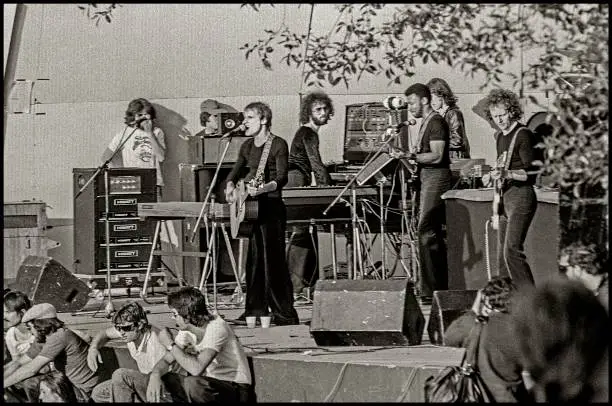
Joe:
It seemed like Cockney Rebel was getting stronger with each album. Can you provide any insight into the sequence of events that led to the eventual disbanding?
Duncan:
When we made that first album with “Make Me Smile (Come Up and See Me),” there was no doubt that Jim Cregan and I were very much part of the writing team. It became very apparent that Steve wasn’t at all prepared to acknowledge that in terms of songwriting credits. Any future would have just been, “Here’s some money come and play,” or “Can I use your knowledge and expertise to make my next song?” We all got a bit fed up with it. Jim left first and went off to join Rod Stewart.
Joe:
That’s kind of similar to what happened with the first iteration of the band.
Duncan:
That’s right. Steve Harley has done it all his life. The proof of what we’re talking about is in the result. Since the Cockney Rebel that I was in, since we all stopped working together, there hasn’t been a hit. It’s really silly. I’d personally rather have 50% of something than 100% of nothing.
Joe:
A handful of years ago you took part in a Cockney Rebel anniversary tour with most of the classic lineup intact. What was the impetus for that tour?
Duncan:
Well, that was Steve’s [Harley] idea. I have been in some contact with Jim [Cregan] and Stuart Elliot, the original drummer, over the years. Stuart and I are good friends. When we talked about putting together a reunion to celebrate The Best Years of Our Lives, I thought, “That will be great fun to relive the camaraderie that we had in those beginning years.” The band was all good mates. It was fabulous. So, I agreed to do it. I went back over to the U.K. for the tour. I enjoyed working with Jim, Stuart, and Steve’s bass player at the time was a guy called Marty Prior. He toured with us and is also the bass player in Fluance. I ended up meeting all the other people from Fluance through Marty.
Joe:
What was the experience like of working with that group of guys again after all those years?
Duncan:
It was terrific to play those old songs, but the tour ended up being all about Steve. Steve was still the prima donna that he always was, but now to an even greater extent. That’s me being very polite. Despite all that, we had a great time. We did 23 dates, or something like that, and played to 3000 people a night. It was fabulous and very humbling to see people of our age coming to revisit their youth. It was amazing to see how important Rebel and those songs had been in their lives. I’ve got goosebumps just thinking about it. I enjoyed that part of it a lot.
Joe:
Your second solo album, Score had some notable differences from Chimera. The psychedelic nature and frenetic pace of Chimera were replaced with jazzier sounds and a more melodic tempo. How did working with Steve Harley, and John Wetton’s production inform your approach?
Duncan:
I think you hit the nail on the head with everything you said. I was now living in the U.K. and had different influences. And that’s the way the record went. EMI was a big company and there were elements added to try to make it more accessible than Chimera. But there never has been a set plan going into an album. It’s gonna go the way it goes naturally as I start writing. I mean, there’s a fake plan, of course. [Laughs]. That’s the lovely thing about going into the studio, you can go in the morning thinking, “I know what I’m doing,” and then you start fiddling around with this sound and that sound. You don’t go in a completely different direction, but certainly with a different flavor. I love that, especially when mistakes in the studio stay on the record. Sometimes those mistakes are bloody brilliant. I find getting it clinically correct, which an awful lot of music is today, somehow sucks the soul out of it.
Joe:
One of the most exciting opportunities you had was working with The Alan Parsons Project on three of their albums towards the beginning of their career. You first met Alan as a producer for Cockyney Rebel, right? What was that experience like and what did you take away from it?
Duncan:
That’s correct. So, there was Alan and Andrew Powell, who was Alan Parsons’s orchestrator. He was a great classical orchestrator. I first met them while recording with Rebel. I got on really well with Alan Parsons. I learned so much from that man through his approach in the studio. He invited me and Stuart Elliott, the drummer from Cockney Rebel, as well as Ian Bairnson and David Paton from Pilot to record on several projects. The four of us became the nucleus for an awful lot of other people’s records. If the four of us had been in a band together, it would have worked because we played well together. It wasn’t the same as getting your average four-session guys to come and play drums, bass, guitar, and keyboards. Events unfolded and we just ended up doing the Parsons album. Then Andrew Powell got the job producing the first Kate Bush album and the same four chaps got pulled in to do that album. We became a team. When we weren’t working with either rebel or pilot, and we had time down, then people would normally knock on the door. They would say, “Can you guys come be the band for our album?” It was all great fun, especially the Parsons Project. It [The Alan Parsons Project] was always innovative and adventurous.
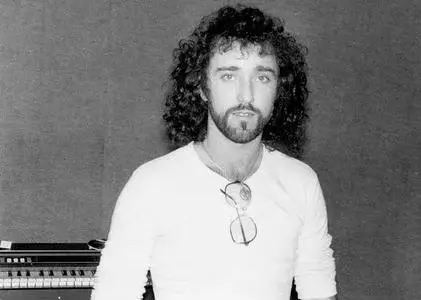
Joe:
You started to mention Kate Bush. What was it like to work with her at the beginning of her career?
Duncan:
Kate was fantastic and delightful. She was unbelievably humble and sweet. She was extremely talented. I loved her songs, writing, and piano playing. She played a great piano. When we went to record Kate’s first album, we all turned up, the four of us [Duncan Mackay, Stuart Elliott, Ian Bairnson, and David Paton]. We hadn’t seen each other for a little while and we had gotten there early. So, we were chatting and catching up. That’s when a funny little incident happened that describes Kate to a tee. This young lady comes into where we are sitting and says, “Would anybody like a cup of tea?” We all said, “Yes, thank you very much. That’d be lovely.” Off she went to get us our tea, and then Andrew Powell turned up. He was a bit late. When he came in, what we thought was the tea girl was beside him. He said, “Have you met Kate yet?” [Laughs]. Then we got to work.
Joe:
By Kate’s third album, Never For Ever, the studio nucleus surrounding the first two albums was mostly not involved. However, you stayed on to work with her on the album for a few tracks. What led to the change in personnel?
Duncan:
I may be wrong, but I think Stuart Elliott was also there. There were other people around that I didn’t know so well. But Joe, that wasn’t such a big deal, I thought “Okay, there are other people around and that was fine.” Around that time, she started to play live, and different people were part of her live outfit. It made sense to include those people in the studio. It was just a chain of events.
Joe:
David Gilmore had a role as an executive producer on Kate Bush’s first album, The Kick Inside. Did you ever work with him in any capacity in the studio during the album?
Duncan:
Not so much, Joe. As far as I remember, heads would pop in, and people would talk, etc., but I don’t remember specifically dealing with him. I know the story about how Kate got the EMI deal in the first place, which was through him. He’d heard her somewhere and knew she was one to watch. And boy, was he right. But his involvement in the album, if my memory serves me right, wasn’t enormous. Maybe behind the scenes, it was enormous.
Joe:
Another band that, like Cockney Rebel, was going through a transitionary period when you joined was 10cc. How did it compare to when you joined Cockney Rebel?
Duncan:
I’ve been very fortunate in both bands I’ve been a member of. Fortunate because the chaps in the band we’re good guys, which is unbelievably vital to any band. It is certainly vital to any band I want to be with. When I was with Rebel, we worked very hard, and we played hard. It was a very good time to be in the game. I had much the same experience with 10cc. 10cc had a different approach in that it was run like the military without the strict bit and certainly not the haircuts. [Laughs]. When we said 9 am in the studio to record, that meant 9 am. Musically, it was fantastic because everybody was always experimenting with different approaches and styles. The live shows were always fantastic with that band, and we were renowned for always having a very good sound. That’s because of the time, the effort, and the thought that went into getting that level of sound. Our sound engineer, who mixed the live sound, was treated almost like a member of the band. That’s how important he was to us. It all just worked well. Great players, great music. I was so fortunate that both bands I joined, Cockney Rebel and 10cc, had hits that went to number one with “Come Up and See Me,” and “Dreadlock Holiday.”
Joe:
Was there anything in particular that pulled 10cc towards the ska and reggae sounds that were incorporated on both “Dreadlock Holiday” and other songs on Bloody Tourists?
Duncan:
The reason that I enjoyed 10cc from day one was the way the music would evolve and transpire. We never sat down and said, “Hey, let’s do a reggae song, or let’s specifically take the direction we did end up taking on ‘Dreadlock Holiday.’” As far as I remember, it was just, we’re going to do a song, and this is how it’s progressing. It wasn’t a whole preconceived idea. I don’t think Eric [Stewart] and Graham [Gouldman] expected it to ever become the monster hit it turned into. I think the enormous success of that track took us all by surprise, at least a little bit.
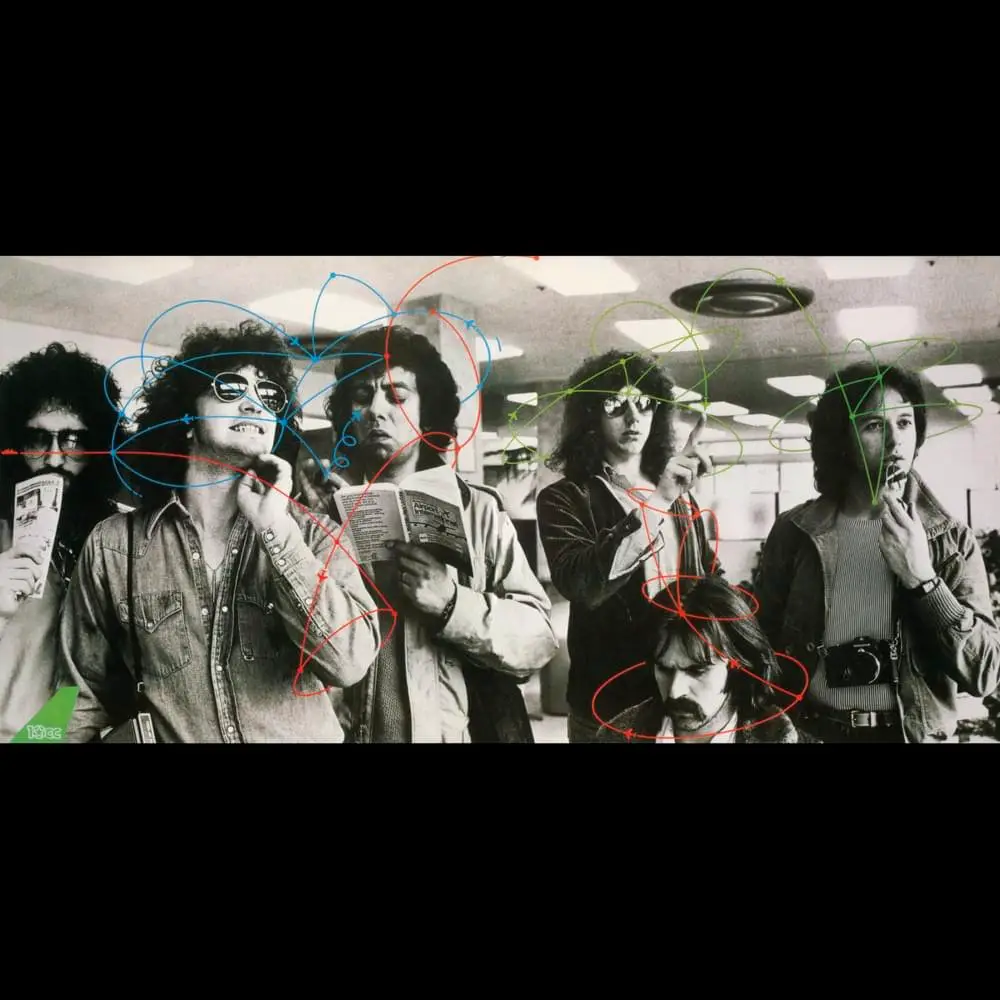
Joe:
Let’s backtrack for a minute and discuss how you ended up becoming a member of 10cc in the first place.
Duncan:
It was New Year’s Eve, and a mate of mine was throwing a party. This mate was a rather famous photographer. He used to throw a party every year to thank all the models, agencies, and other people he worked with. He asked, “Do you want to put together a little scratch band and come play the New Year party?” I went, “Yeah, why not?” I remember lugging my Hammond up the stairs and helping set everything up. We started playing and one of the chaps who turned up was Rick Fenn, the guitarist from 10cc. We had a spare amp and Rick plugged in and jammed with us. We had great fun and eventually said our goodbyes. Later on, the next week, he phoned up and said, “Do you want to come meet the band? I’m in 10cc. We’re looking for a keyboard player.” I hit it off with the guys in the band. They had just started recording the Bloody Tourist album. I was able to slot in rather nicely, right at the beginning of that album. That’s how that happened. It was a shame it didn’t carry on longer.
Joe:
What were the circumstances that led to you parting ways with 10cc sometime after Look Here?
Duncan:
We were in the middle of a world tour. We had just come back from America, and we had Christmas off. We had two weeks and then we were on our way to Australia and Japan. In that interim Eric [Stewart] had a terrible car crash on black ice. The car crash turned into a disaster for the band as Eric was injured quite badly. Some decisions were made by management that were silly. Then we did the Look Here? album, which was a very different experience from making Bloody Tourists. Things seemed to diminish from there to a point where I had to make the hard decision to move on.
Joe:
I wanted to touch on Budgie. I’d say that Budgie was very different from many other artists you had worked with to that point. While Budgie had begun to experiment with various sounds, Deliver Us From Evil was certainly a divergence for the band. Where was the band both creatively and musically at the time, and what were the circumstances that led to you being involved in the album?
Duncan:
I don’t know definitively, but I’m pretty sure they’d heard some of my other work. Based on what they heard, they thought that I could help in with the direction they were looking to go in. My knowledge of them as a band, before I turned up in the studio, was limited. I knew of them, but I hadn’t heard lots of their music. I had no idea what I was turning up for. In many ways, that aspect was no different from many of the other experiences I have had. People wanted me to play with them because of my style, which was a lot different than many of my contemporaries. Whatever I brought to the party, it was what they were looking for.
Joe:
Were you given full creative control over the keyboard parts, or were you considered more of a hired gun?
Duncan:
I have never been the hired gun, ever. It’s not me being arrogant but simply the way my career has gone. People would ask me to play on an album because they liked how I played. I can only say this in hindsight but there really were no expectations. I was booked to do an album in this residential studio with Budgie. I turned up and it was great. I got to meet some nice guys and play some music. That’s kind of how I went into it.
Joe:
Given this was Budgie’s first album to significantly feature the keyboards, what were the expectations set forth going into the studio?
Duncan:
You should also understand that there are things I turned down. I remember one band, who I won’t mention, had their management phone me up. They said, “We’re looking for someone who plays piano like Jerry Lee Lewis.” I said, “Well, don’t speak to me because I don’t play anything like that. It’s not how I play. So, thank you, but no thank you.” I play how I play, and it seems to have worked rather well.
Joe:
In the 70s through the early 80s, you were on a torrid recording pace. How did you find the time to record your solo music while also being a member of Cockney Rebel, as well as 10cc, and work as a session musician?
Duncan:
It was my extreme, complete, and dedicated focus on playing and making music. I loved every second of it. None of it seemed like work. It was all, “Yeah, brilliant. Fancy that. Let’s have a go.” The timing of it all played into it as well. It was a different era in rock ‘n’ roll, progressive music, or whatever you want to call it. It was more adventurous, and people were taking a lot more risks than they do now. That all benefited me as a musician. I’m delighted that I was able to work so extensively during that era and for it to have brought forth so many highlights from my career. It was an era where the music business seemed to be run more by music than business. I’m sure that may not fully be an accurate statement, but those are my feelings regarding the music business. I’m not moaning. It’s changed. The world changed. Life changed. It is what it is.
Joe:
It’s certainly important to touch on Visa. I see it as a nod to much of your later work in library music and soundtracks. You mentioned that much of your music tends to develop organically in the studio, however, what inspired you to take the direction you developed on Visa?
Duncan:
I know what I said earlier about how I record but, Visa was the exception. I’ve always been a tunesmith. Tunes have always just come to me. I love a good tune and that is probably based on my classical training. Mozart and Beethoven wrote great tunes and that’s why we still know them hundreds of years later. In the Chimera days and subsequent albums, virtuosity was part of the writing thing there. When I did Visa, I thought, “Let’s explore this being a tunesmith idea, but keep some technique and a put bit of flash in it.” Plus, I had just recently acquired some sequencers and other new equipment. It was an experiment and probably a bit more contrived than some of my other works. It was a different direction for sure. I had built my first ever studio and that was my first attempt at recording there. That was the path that Visa went down. It was an experiment, and it was exciting.
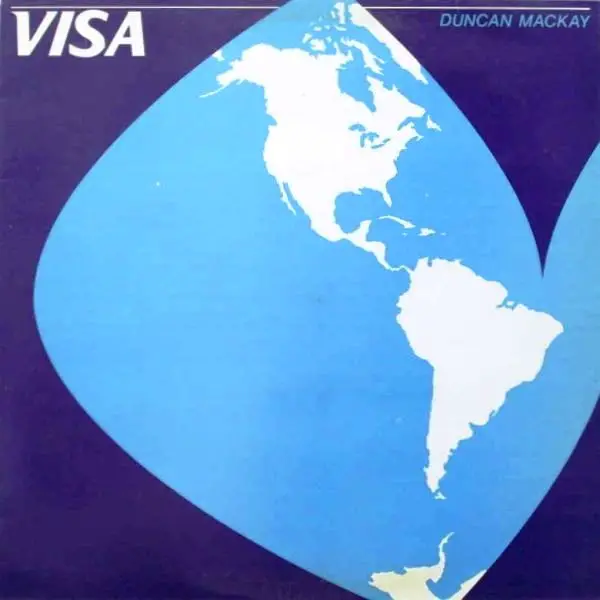
Joe:
With Greg McEwan Kocovaos, you recorded The First Time. The two of you were seamlessly able to blend new wave/art rock sounds with more modern electronic and world music flavors. I was able to listen to the album on SoundCloud, but not much else is out there about the album.
Duncan:
To tell you the truth, I had no idea it was available anywhere. [Laughs]. It was a great plan, but it didn’t work out. If you want to work with me, committing to something is a prerequisite lesson. If I’m going to put all my energy into something, I expect it from the other people I’m working with as well. In my book, it’s not too much to expect. It’s a prerequisite for making good music and getting it somewhere. It didn’t work out and it was a shame. The way it was going, it became obvious to me towards the end of making the album that it wasn’t going to work out. So, I made the album and moved on. This has happened to me a few times. I’ve gone down a path with someone who has said all the right words at the beginning about commitment and didn’t follow through.
You know, people say musicians just go on stage and they work for two hours a day, “Lucky them.” All the good musicians do much more. They just live it. You need to say, “Look, I have no idea if this is gonna be successful. I have no idea if it’s gonna make a dollar or a million dollars. But I’m going into it with 100%.” Otherwise, why bother? That’s been my attitude to this game all my life. That happened with Greg, and it unfortunately also happened with the Bletchley Park Project. The projects that didn’t work out always cause me to look back on my time with both Rebel and 10 CC with gratitude. Gratitude because all the people in those bands were so like-minded about what we were up to, and generally good chaps. That is vital for me. I can’t work with someone who I haven’t got any respect. I don’t care how talented they are. Is the plan to be heart-and-soul 100%? Then off we go. That’s the truth. Thank you for even knowing about it.
Joe:
You mentioned the Bletchley Park Project. I wanted to discuss both that album and Kintsugi. What made you return to your 70s prog rock-styled musical approach, and how did you end up on the Japanese label, Belle Antique?
Duncan:
How that came about was out of the blue. I got a request from a Japanese prog magazine to do an interview. My interview was featured in this magazine, and soon after I got a call from Belle Antique Records. They said, “Would you be interested in doing a prog album.” I’ve done a lot of commercial things, as we’ve talked about, but there is nothing like being inventive. Progressive music allows you to do that. “Progressive” means you experiment, and you go into places you wouldn’t otherwise. So, I told them I would be glad to work on something with them. At the time, I already working on something with a drummer and that evolved into the Bletchley Park Project album.
Joe:
I know you also write and record library music. For those ignorant of the process, what is your approach to writing library music?
Duncan:
Well, library music started for me back in when I was still in the U.K. I became friends with people at KPM records, which was an affiliate of EMI. I started doing library music for them and it worked well for me, because, as I said, I’m a bit of a tunesmith. With library music, they give you a kind of theme. They say, “This is going to be about industry,” so you know it’s gonna have to be powerful. Or they say, “This is going to be pastoral,” so you think countryside and your tunes to go off in different directions from there. Once you have enough tunes, you end up with a library album that is suitable for your theme. I found that I was alright at that, and they liked what I was doing.
Joe:
How did you get into soundtracking documentaries and TV shows? How is the approach taken for a soundtrack different?
Duncan:
Consequently, from the success with library music, came the commissions for film. The difference with writing for films and the like is that instead of an overall theme, you’ve got a rough cut of the visuals or a storyboard. It enables you to fine-tune your work. The music is there to enhance the story not to take over. A perfect example is Jaws. Without the Jaws music, it’s just somebody going for a swim on a beach. Pretty boring [imitates person snoring]. Because you hear that music [starts humming Jaws theme] you anticipate something exciting and awful is gonna happen. It’s fabulous when music can do that. That’s how I see music, whether it’s rock ‘n’ roll or music for films. Is it making you feel something? What’s it meant to do? If you can achieve a little bit of that you’re winning.

Joe:
Tell me a little about your studio.
Duncan:
The studio has grown in importance for me as my life has changed from touring and all that to what I do now. My wife and I designed and built the studio in our house. I spent a lot of time in the studio, It’s heaven.
Joe:
Do you only record your work, or others as well? If you do record others, are you involved as a producer, engineer, etc.?
Duncan:
I made a point to get into recording others in the studio because the opportunity is there. In this era, everybody I meet is a record producer or an engineer. I feel like it used to be quite an exclusive club, and I respect that. So, in 1,000 years I wouldn’t say I’m an engineer or a producer if I’m being truthful. Yes, I am both, but that’s not where I hang my hat. However, over the years, I’ve learned some things. I’m pretty good at pressing the buttons, I suppose. The whole point since I had my first eight-track studio ‘til now, is that it enables me to create the music that’s in my head or somebody else’s head. It’s a tool to create, hopefully, what everybody wants to hear. That’s how I see my studio.
Joe:
All of that aside, Duncan, what have you been up to in the past couple of years considering the current state of the world? Is Fluance a major point of focus?
Duncan:
Yes. I’ve been concentrating a lot on Fluance, which is the band that did Lunacy. When we brought out the Lunacy album, we dealt with Belle Antique because I’ve got a deal with them. And they liked what I did in Japan. So, we were already getting ready for me to travel from Cape Town and Marty [Prior], the bass player, to travel from Spain to rehearse. Then hopefully go out and promote the album. Then, of course, the pandemic hits. So that all went out the window. It is a difficult time for everybody in any profession in the world, especially musicians. COVID and Brexit have completely screwed how musicians make money. It put a stop to things, with Fluance, for some time. There was nowhere to play because it was all closed down. The timing of the first album from Fluance was unfortunate. I said to the chaps, “All we can do in this time is use the time to create the best album we possibly can.” So, we’re getting to the end of completing the recording of it. That’s kind of what I’ve been doing in these strange times.
Joe:
Sounds like you have been keeping yourself busy working on this new Fluance album. What can you tell us about it?
Duncan:
It is 90% recorded. We have just in recent months found a new permanent guitarist. A guy called Mauritz Lotz. He lives in Johannesburg. It’s funny, I’ve been living in Cape Town for a long time now and I just discovered him. He is fitting in with the band rather well. He is in the process of putting some guitar on the tracks that we’ve done. Then we sit down and decide where we go from there.
Joe:
Any other projects coming out in the future we should be aware of?
Duncan:
I’m in the process of writing music for a movie that is coming out. It’s from a South African film director and producer. He’s planning to start shooting later this year. It has a wondrous title, Drunks Have Whiter Teeth. I’ve been writing music for that when I’m not working with Fluance.
– Joe O’Brien (@JoeOB1005) is the Senior Columnist for www.vwmusicrocks.com and may be reached at joe@vinylwriter.com
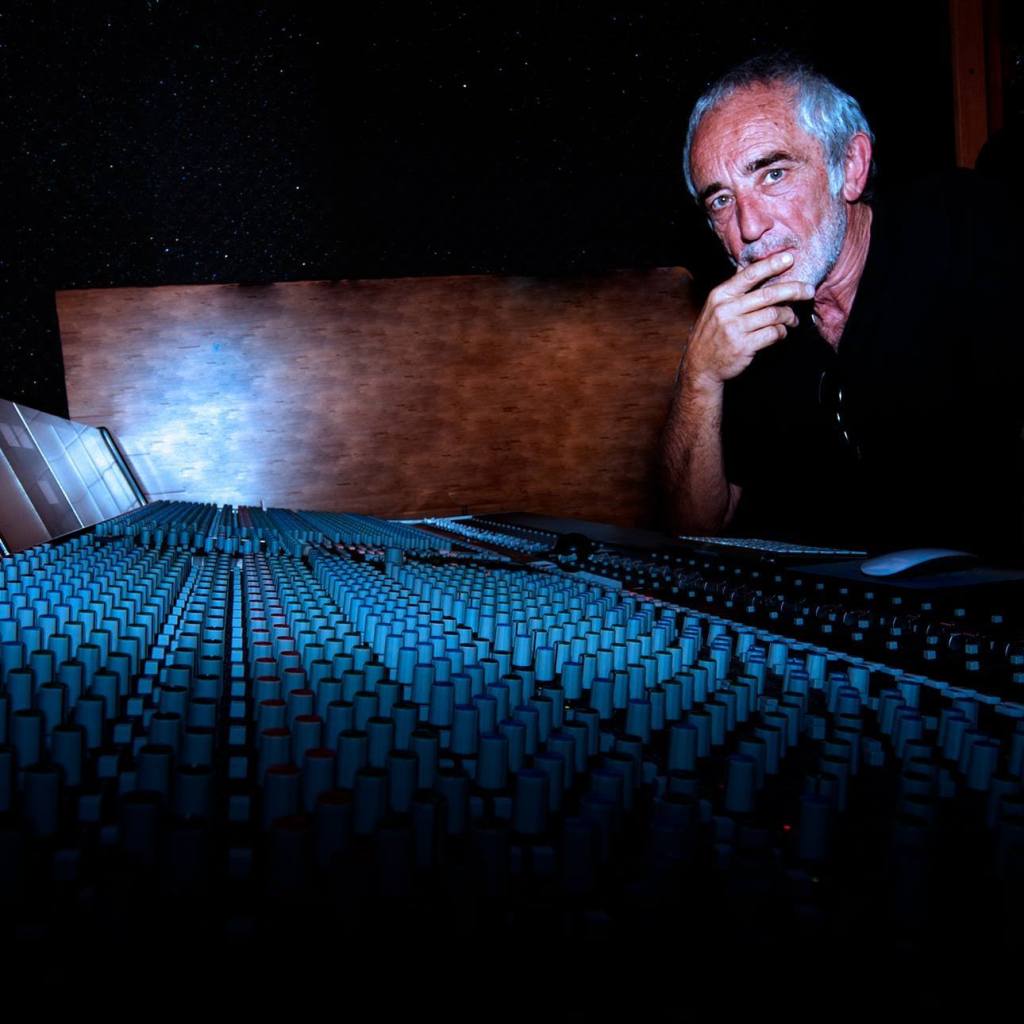




Leave a Reply